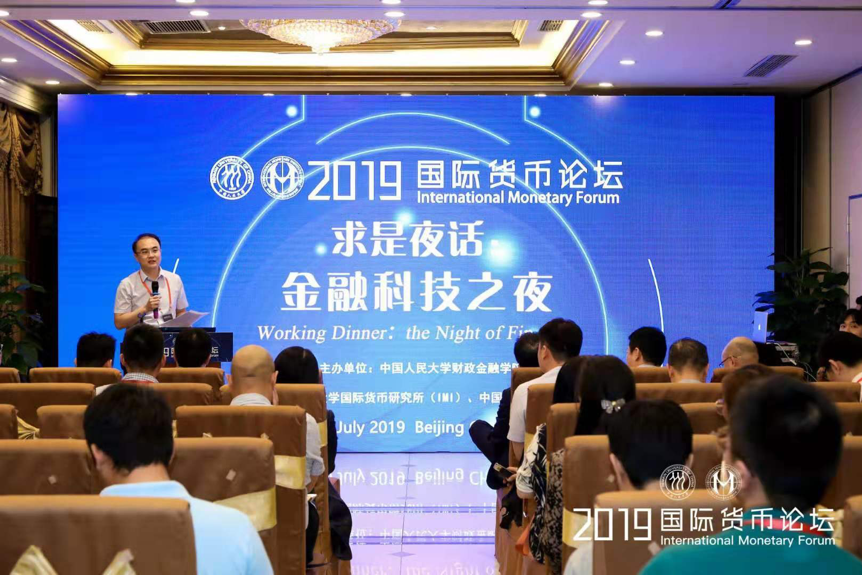2019 International Monetary Forum
2019-07-15 IMI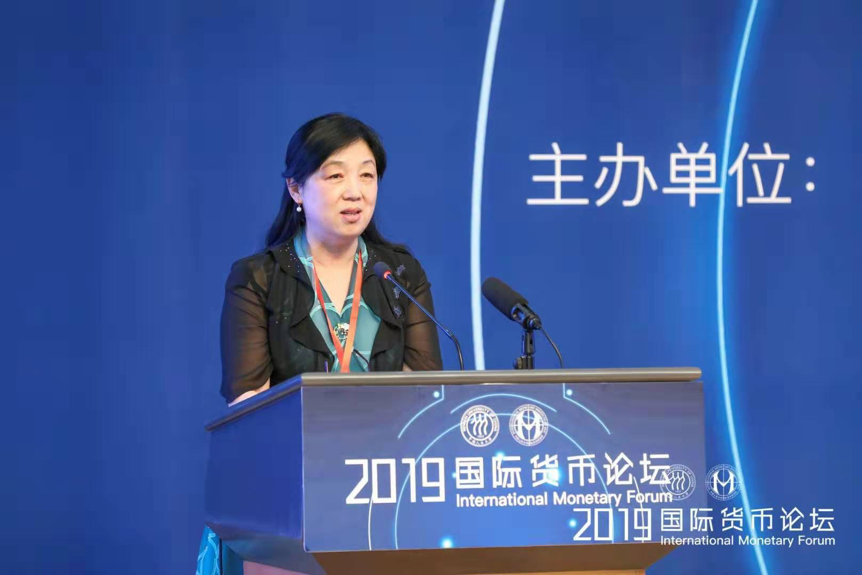 President Liu Wei delivered an opening speech. He pointed out that monetary capital is the most liquid and active element in the modern economic system. He hoped the forum can serve as a platform for all the guests to discuss the hotspots and key issues of China's economic and financial development providing solutions to the problems. Liu Wei wrapped up his speech with wishes of success for the forum.
President Liu Wei delivered an opening speech. He pointed out that monetary capital is the most liquid and active element in the modern economic system. He hoped the forum can serve as a platform for all the guests to discuss the hotspots and key issues of China's economic and financial development providing solutions to the problems. Liu Wei wrapped up his speech with wishes of success for the forum.
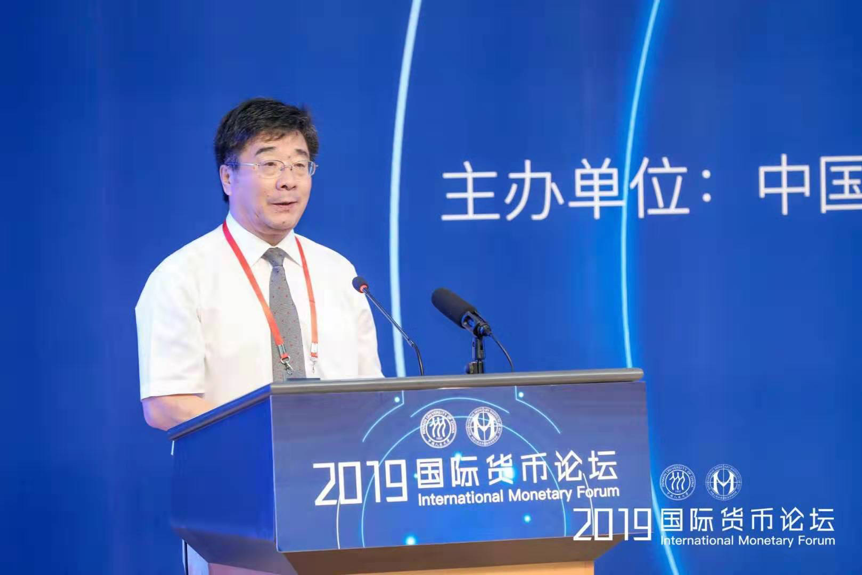 Wang Fang, deputy director of IMI and professor of the School of Finance at Renmin University, interpreted the "Internationalization Report on RMB 2019". She mentioned that the report pointed out that the RMB internationalization index RII rebounded strongly and reached 2.95% at the end of 2018. In the past ten years, it has achieved major changes from scratch and is now among the major international currencies. The theme of this year's report is “High Quality Development and High-Standard Financial Opening”. The research team summarized three features of high-quality development in contemporary China, namely efficiency, stability and inclusiveness. It believes that high-quality development determines the future of RMB internationalization. In addition to providing a solid foundation and lasting power, it will also give RMB Internationalization Chinese and contemporary characteristics of high efficiency, stability and inclusiveness. The report emphasizes that high-quality development requires a more adaptive financial system, and high-level financial openness will help achieve high-quality development, but high-level financial opening needs to be gradually realized in further reforms. Current work focuses on consolidating micro-foundations centered on enterprises and financial institutions, deepening the development of financial markets, improving financial infrastructure, and improving financial management capabilities under open conditions.
Wang Fang, deputy director of IMI and professor of the School of Finance at Renmin University, interpreted the "Internationalization Report on RMB 2019". She mentioned that the report pointed out that the RMB internationalization index RII rebounded strongly and reached 2.95% at the end of 2018. In the past ten years, it has achieved major changes from scratch and is now among the major international currencies. The theme of this year's report is “High Quality Development and High-Standard Financial Opening”. The research team summarized three features of high-quality development in contemporary China, namely efficiency, stability and inclusiveness. It believes that high-quality development determines the future of RMB internationalization. In addition to providing a solid foundation and lasting power, it will also give RMB Internationalization Chinese and contemporary characteristics of high efficiency, stability and inclusiveness. The report emphasizes that high-quality development requires a more adaptive financial system, and high-level financial openness will help achieve high-quality development, but high-level financial opening needs to be gradually realized in further reforms. Current work focuses on consolidating micro-foundations centered on enterprises and financial institutions, deepening the development of financial markets, improving financial infrastructure, and improving financial management capabilities under open conditions.
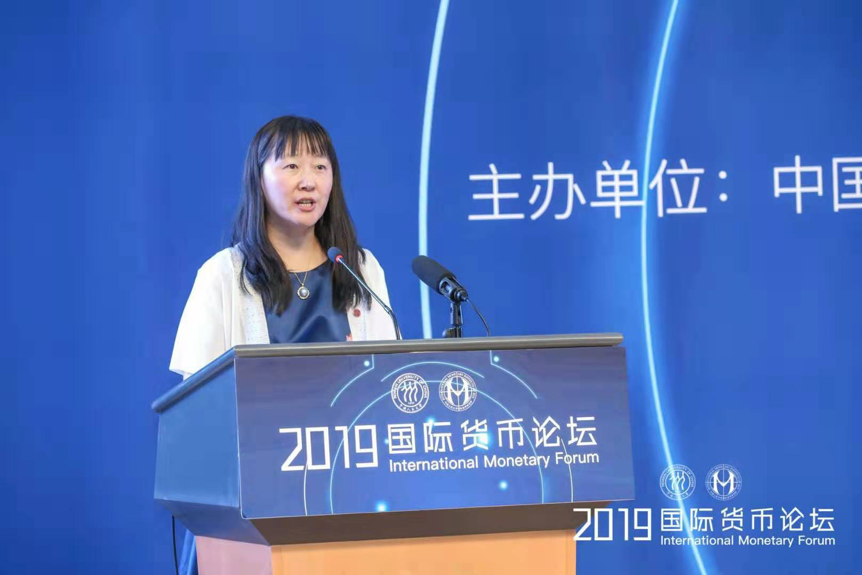 The keynote speech was hosted by Zhang Jie, director of IMI and professor of the School of Finance of Renmin University. Xiao Gang, Hu Xiaolian, Huo Yingli and Yaseen Anwar delivered speeches successively.
The keynote speech was hosted by Zhang Jie, director of IMI and professor of the School of Finance of Renmin University. Xiao Gang, Hu Xiaolian, Huo Yingli and Yaseen Anwar delivered speeches successively.
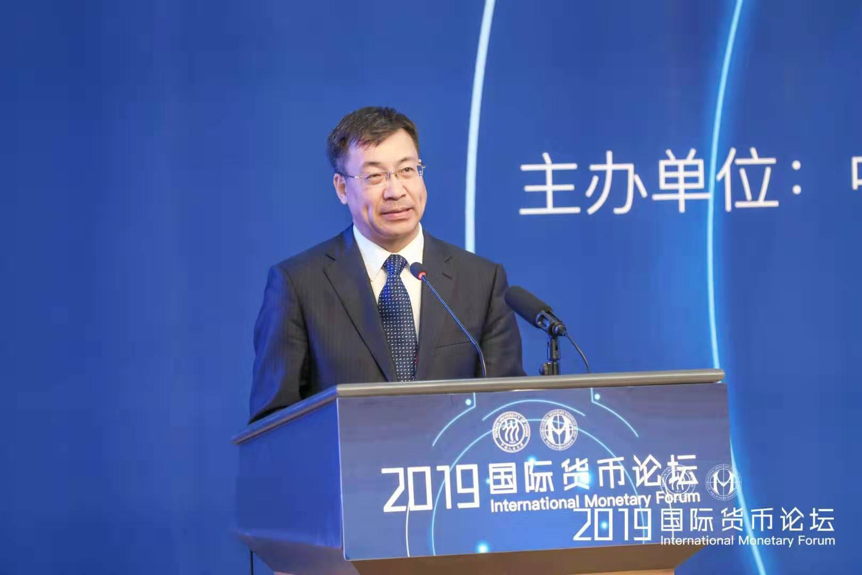 Xiao Gang delivered a keynote speech on "The opportunities and challenges of china's stock market opening" and elaborated on a series of new measures for the opening of China's stock market, including the attraction of foreign long-term institutional investors, connectivity in the stock market, the increasing share of foreign investment in the stock market, two-way flow of cross-border investment and financing, integration into international indexes, and two-way opening of the securities service industry. He mentioned the significance of introducing high-quality resources, improving the structure of investors, promoting reforms through opening up, encouraging healthy competition, and promoting the growth of open economies. He also gave advice on the opening up of the stock market from the perspectives of market-oriented reforms of interest rates and exchange rates, further monitoring of cross-border funds, addressing the lack of risk management tools in the stock market, extension of domestic legal rules, further supervision of foreign financial institutions, and improvement of cross-border supervision.
Xiao Gang delivered a keynote speech on "The opportunities and challenges of china's stock market opening" and elaborated on a series of new measures for the opening of China's stock market, including the attraction of foreign long-term institutional investors, connectivity in the stock market, the increasing share of foreign investment in the stock market, two-way flow of cross-border investment and financing, integration into international indexes, and two-way opening of the securities service industry. He mentioned the significance of introducing high-quality resources, improving the structure of investors, promoting reforms through opening up, encouraging healthy competition, and promoting the growth of open economies. He also gave advice on the opening up of the stock market from the perspectives of market-oriented reforms of interest rates and exchange rates, further monitoring of cross-border funds, addressing the lack of risk management tools in the stock market, extension of domestic legal rules, further supervision of foreign financial institutions, and improvement of cross-border supervision.
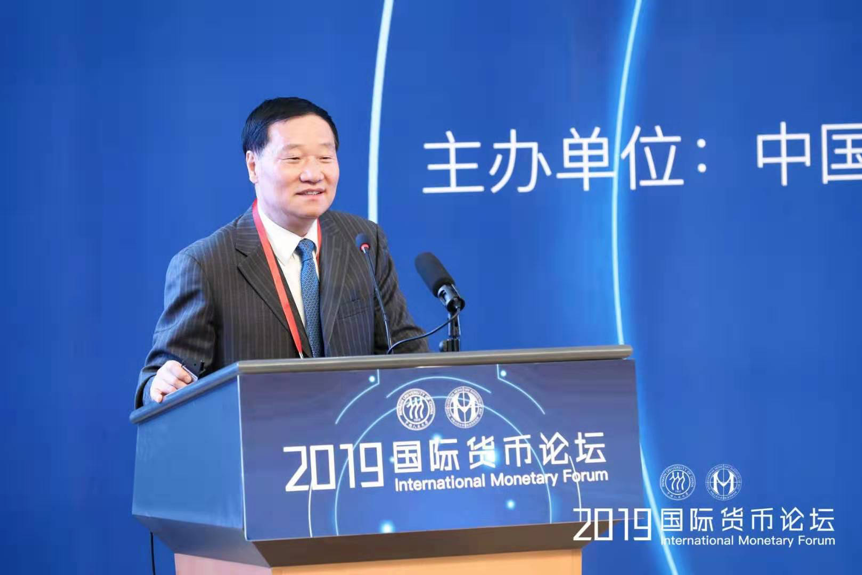 Hu Xiaolian delivered a keynote speech entitled “Sharpen the financial competitive edge and advance the internationalization of Renminbi”. She analyzed the data changes in China’s current account and capital account, and came to the conclusion that China is transitioning from a commodity-exporting country to a commodity- importing and capital-exporting country. She also pointed out that China’s financial sector is large yet not strong, hence the weakness of Renminbi internationalization. In the end, she put forward several suggestions to promote the overall competitiveness of China’s financial sector.
Hu Xiaolian delivered a keynote speech entitled “Sharpen the financial competitive edge and advance the internationalization of Renminbi”. She analyzed the data changes in China’s current account and capital account, and came to the conclusion that China is transitioning from a commodity-exporting country to a commodity- importing and capital-exporting country. She also pointed out that China’s financial sector is large yet not strong, hence the weakness of Renminbi internationalization. In the end, she put forward several suggestions to promote the overall competitiveness of China’s financial sector.
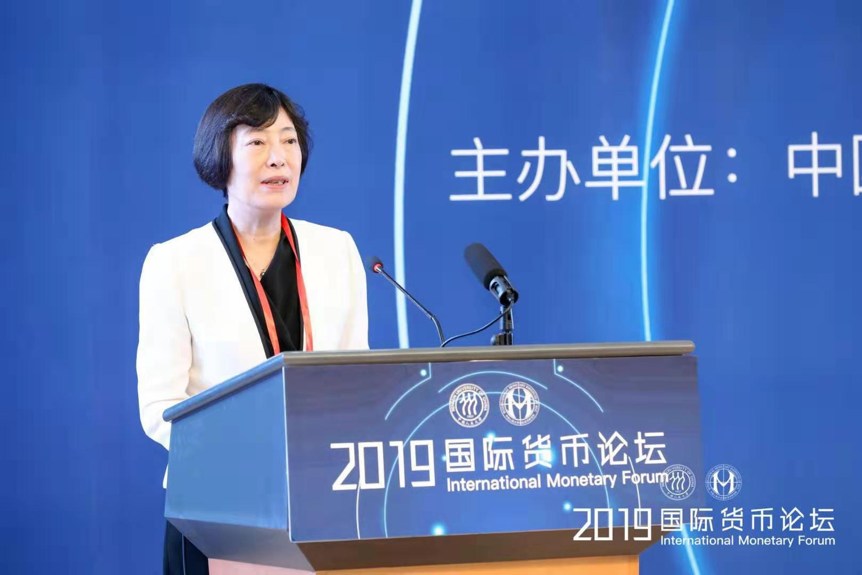 Huo Yingli delivered a keynote speech entitled “Balance the efficiency and stability of cross-border capital flows”. She believed that we should take both efficiency and stability into account when speaking of high-quality financial opening-up, especially cross-border capital flows. First, it is necessary to improve the corresponding investment arrangements for the direct entry of foreign investors into domestic market and the interconnection of domestic and overseas transactions. Besides, we need to improve corresponding regulatory measures. In accordance with the requirements of high-quality development, we have continued to improve the institutional arrangements for opening up financial market in recent years, including settlement system, foreign exchange mechanism and risk hedging and opening-up channels. In terms of Renminbi internationalization, she believed that it is driven by the market and is a natural process. However, we’re still facing problems like infrequent use of current account and Renminbi for payment. So we need to adapt to the needs of high-quality development, promote the opening up of financial market to a higher level, continue to improve the policy framework and relevant infrastructure arrangements for cross-border use of Renminbi, and continuously improve the macro-prudential management of cross-border capital flows.
Huo Yingli delivered a keynote speech entitled “Balance the efficiency and stability of cross-border capital flows”. She believed that we should take both efficiency and stability into account when speaking of high-quality financial opening-up, especially cross-border capital flows. First, it is necessary to improve the corresponding investment arrangements for the direct entry of foreign investors into domestic market and the interconnection of domestic and overseas transactions. Besides, we need to improve corresponding regulatory measures. In accordance with the requirements of high-quality development, we have continued to improve the institutional arrangements for opening up financial market in recent years, including settlement system, foreign exchange mechanism and risk hedging and opening-up channels. In terms of Renminbi internationalization, she believed that it is driven by the market and is a natural process. However, we’re still facing problems like infrequent use of current account and Renminbi for payment. So we need to adapt to the needs of high-quality development, promote the opening up of financial market to a higher level, continue to improve the policy framework and relevant infrastructure arrangements for cross-border use of Renminbi, and continuously improve the macro-prudential management of cross-border capital flows.
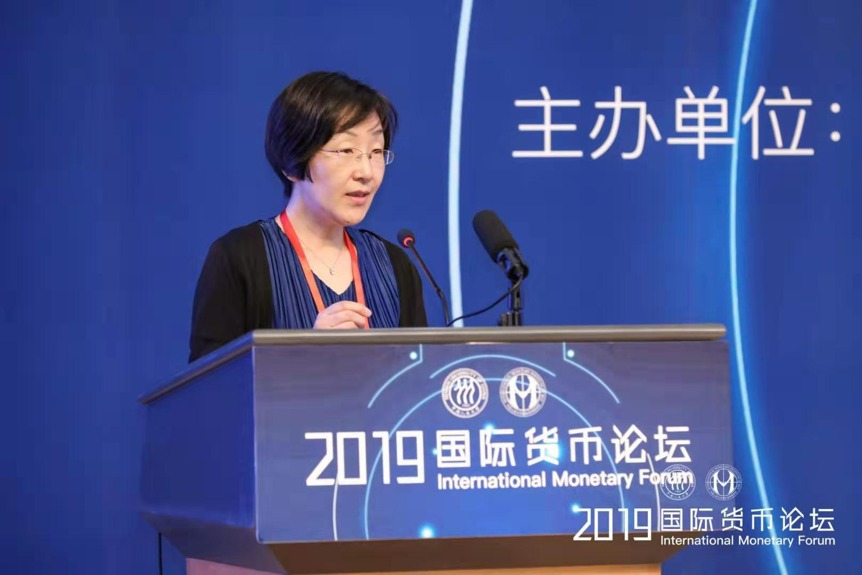 Yaseen Anwar focused on a practical perspective. Against the backdrop of increasing global uncertainty risks, China’s Belt and Road Initiative has created mechanism and opportunities for emerging economies to interconnect with each other. He also pointed out that corporate bond market can compete with the banking system. Finally, he said that global financial crisis called for the reform of Central Bank’s regulation and supervision. The Financial Stability Board, including Central Bank, needs to create an enabling environment and regulatory mechanism to integrate capital requirements, infrastructure building and multilateral cooperation. Multilateral financial institutions also need to increase depoliticized lending.
Yaseen Anwar focused on a practical perspective. Against the backdrop of increasing global uncertainty risks, China’s Belt and Road Initiative has created mechanism and opportunities for emerging economies to interconnect with each other. He also pointed out that corporate bond market can compete with the banking system. Finally, he said that global financial crisis called for the reform of Central Bank’s regulation and supervision. The Financial Stability Board, including Central Bank, needs to create an enabling environment and regulatory mechanism to integrate capital requirements, infrastructure building and multilateral cooperation. Multilateral financial institutions also need to increase depoliticized lending.
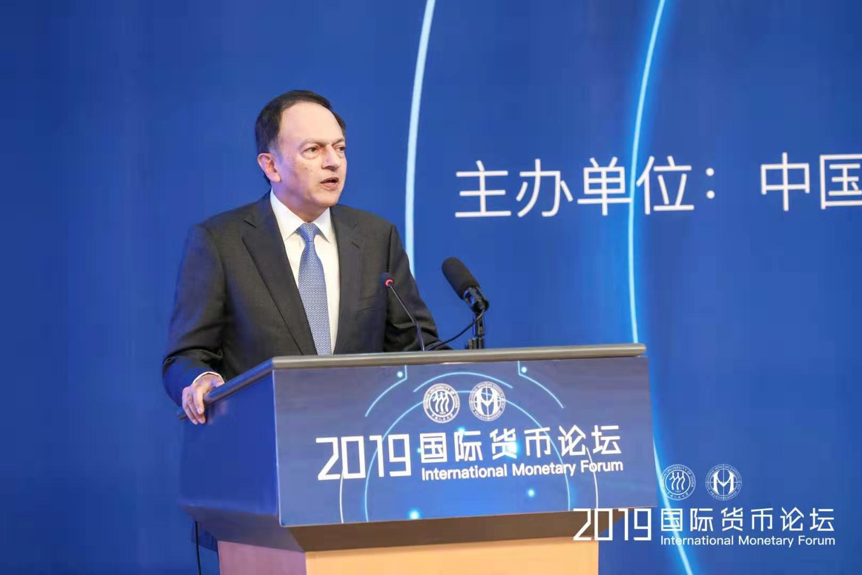 The Theme 1 sub-forum centered on financial supply-side reform and financial risk prevention, chaired by Ben Shenglin, Co-director of IMI, Founder and Dean, Zhejiang University Academy of Internet Finance, and International Business School. Keynote speakers were Wang Zhongmin, Former Deputy Chairman, National Council for Social Security Fund of China, Chen Yunxian, Party Member and Former Deputy Governor, Guangdong Provincial People’s Government, and Wang Guogang, Professor, School of Finance, RUC, Member of Academic Committee, CASS. Panel Discussion I, Opportunities and Challenges in Financial Supply-side Reform, and Panel Discussion II, Forestall and Defuse Major Financial Risks from Multiple Aspects, involved Chen Qiqing, Deputy Director, Department of Economics, Party School of the CPC Central Committee; Chen Xinjian, Executive Director and Vice President, Industrial Bank Co., Ltd.; Yao Yang, Dean of National School of Development at Peking University; Zhao Changwen, Director, Industrial Economy Division, Development Research Center of the State Council; Qu Qiang, Director, China Financial Policy Research Center, Renmin University of China; Fan Xiwen, Chief Risk Officer, China-LAC Cooperation Fund; Fang Xin, Vice President, PBoC Chengdu Branch; Vice Administrator, SAFE Sichuan Branch; Ding Jianping, Deputy Director, Shanghai Institute of International Finance Center; Huang Jinlao, Chairman of Board, Suning Bank Co., Ltd.; Zhou Yueqiu, Director, Institute of Urban Finance, ICBC; Secretary General, China Urban Financial Society; and Hu Jing, Partner of Financial Institutions Service Industry, PwC.
The Theme 1 sub-forum centered on financial supply-side reform and financial risk prevention, chaired by Ben Shenglin, Co-director of IMI, Founder and Dean, Zhejiang University Academy of Internet Finance, and International Business School. Keynote speakers were Wang Zhongmin, Former Deputy Chairman, National Council for Social Security Fund of China, Chen Yunxian, Party Member and Former Deputy Governor, Guangdong Provincial People’s Government, and Wang Guogang, Professor, School of Finance, RUC, Member of Academic Committee, CASS. Panel Discussion I, Opportunities and Challenges in Financial Supply-side Reform, and Panel Discussion II, Forestall and Defuse Major Financial Risks from Multiple Aspects, involved Chen Qiqing, Deputy Director, Department of Economics, Party School of the CPC Central Committee; Chen Xinjian, Executive Director and Vice President, Industrial Bank Co., Ltd.; Yao Yang, Dean of National School of Development at Peking University; Zhao Changwen, Director, Industrial Economy Division, Development Research Center of the State Council; Qu Qiang, Director, China Financial Policy Research Center, Renmin University of China; Fan Xiwen, Chief Risk Officer, China-LAC Cooperation Fund; Fang Xin, Vice President, PBoC Chengdu Branch; Vice Administrator, SAFE Sichuan Branch; Ding Jianping, Deputy Director, Shanghai Institute of International Finance Center; Huang Jinlao, Chairman of Board, Suning Bank Co., Ltd.; Zhou Yueqiu, Director, Institute of Urban Finance, ICBC; Secretary General, China Urban Financial Society; and Hu Jing, Partner of Financial Institutions Service Industry, PwC.
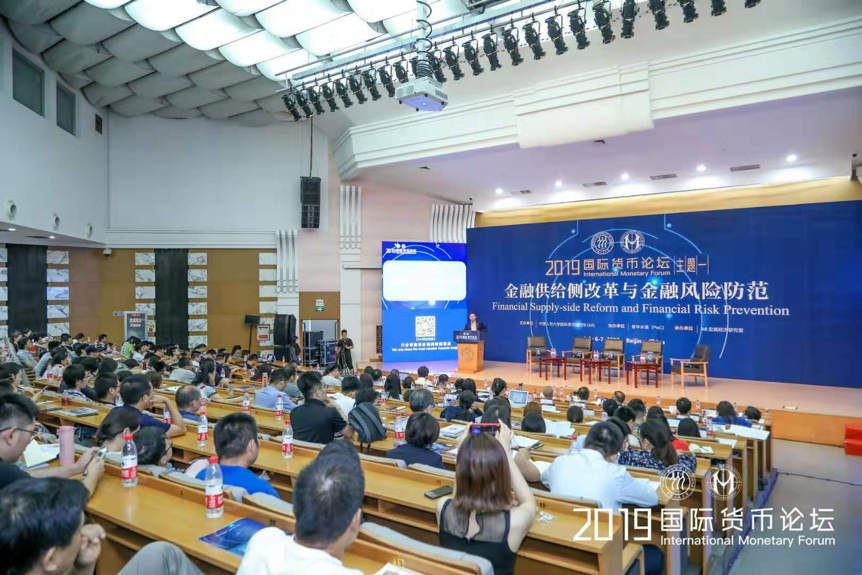 The Theme 2 sub-forum centered on fiscal reform and the two-pillar macro-control system, chaired by Wang Yi, Director-General, Department of Finance, Ministry of Finance. Keynote speakers were Liu Shangxi, Dean, Chinese Academy of Fiscal Science; Huo Yingli, Director General, the Macro Prudential Administration, PBoC; Li Jizun, Director, Market Department, CBIRC; and Zeng Gang, Deputy Director General, National Institution for Finance and Development. Roundtable Discussion included Hu Xuehao, Deputy Director-General, Department of Finance, Ministry of Finance; Mu Changchun, Deputy Director-General, Payment and Settlement Department, PBoC; Yan Xiandong, Deputy Director-General, Statistics and Analysis Deparment, PBoC; Feng Bo, Former General Manager, Dalian Commodity Exchange; Huang Qing, Secretary of the board, China Shenhua Energy Company Limited; Zhang Haiyun, Director, Financial Market Research Center and Professor, School of Finance, University of International Business and Economics; Zhou Guangwen, Chairman of Board, Ginkgo Capital and Beijing Gintong Investment Co., Ltd.; Guan Wei, Executive Director, Credit Management Research Center; Professor, School of Finance, Renmin University of China, and Chen Yanbin, Executive Director, Key Research Base for Construction of National Economics Textbook, Renmin University of China.
The Theme 2 sub-forum centered on fiscal reform and the two-pillar macro-control system, chaired by Wang Yi, Director-General, Department of Finance, Ministry of Finance. Keynote speakers were Liu Shangxi, Dean, Chinese Academy of Fiscal Science; Huo Yingli, Director General, the Macro Prudential Administration, PBoC; Li Jizun, Director, Market Department, CBIRC; and Zeng Gang, Deputy Director General, National Institution for Finance and Development. Roundtable Discussion included Hu Xuehao, Deputy Director-General, Department of Finance, Ministry of Finance; Mu Changchun, Deputy Director-General, Payment and Settlement Department, PBoC; Yan Xiandong, Deputy Director-General, Statistics and Analysis Deparment, PBoC; Feng Bo, Former General Manager, Dalian Commodity Exchange; Huang Qing, Secretary of the board, China Shenhua Energy Company Limited; Zhang Haiyun, Director, Financial Market Research Center and Professor, School of Finance, University of International Business and Economics; Zhou Guangwen, Chairman of Board, Ginkgo Capital and Beijing Gintong Investment Co., Ltd.; Guan Wei, Executive Director, Credit Management Research Center; Professor, School of Finance, Renmin University of China, and Chen Yanbin, Executive Director, Key Research Base for Construction of National Economics Textbook, Renmin University of China.
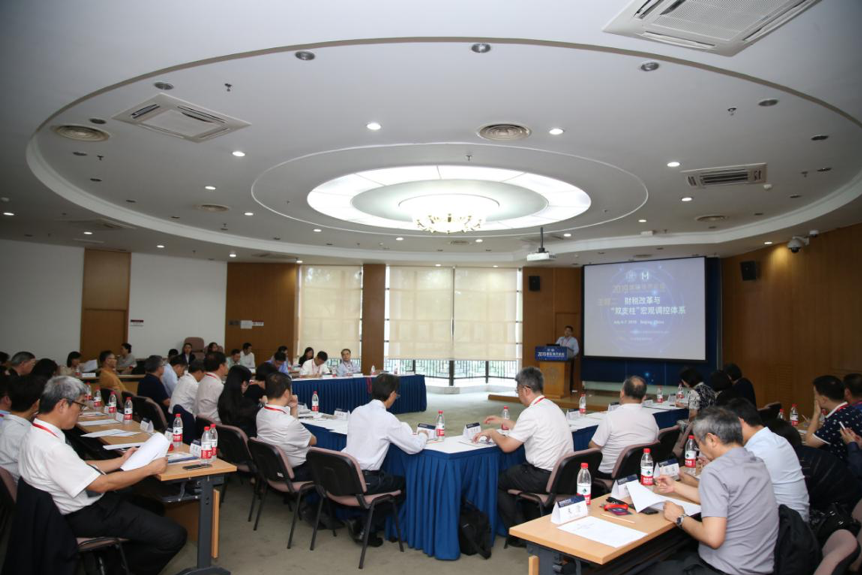 The Theme 3 sub-forum was on Asset Management and Wealth Management Subsidiaries of Banks, chaired by Zhao Xijun, Associate Dean, School of Finance, Renmin University of China. Bu Yanhong, General Manager, Asset Management Department, Postal Savings Bank of China; Wei Quanhong, Deputy General Manager of ICBC Wealth Management Co., Ltd.; An Qilei, Former Deputy Director General, Financial Stability Bureau, PBoC; Cao Deyun, Executive Vice President and Secretary General, Insurance Asset Management; Jia Zhimin, Vice President of Asset Management, Pingan Bank; Zeng Gang, Deputy Director General, National Institution for Finance and Development; Chen Jianxiong, Vice President, China Orient Asset Management Co., Ltd.; Wang Ge, Vice President, Huatai United Securities; Wang Qi, Assistant General Manager and Director of Investment Research, China Fund; and Fang Qingli, Head of CICC Wealth Management have exchanged in-depth views under the themes of "Opportunities and Challenges of Wealth Management Subsidiaries of Banks" and "Asset Management in Global Competition".
The Theme 3 sub-forum was on Asset Management and Wealth Management Subsidiaries of Banks, chaired by Zhao Xijun, Associate Dean, School of Finance, Renmin University of China. Bu Yanhong, General Manager, Asset Management Department, Postal Savings Bank of China; Wei Quanhong, Deputy General Manager of ICBC Wealth Management Co., Ltd.; An Qilei, Former Deputy Director General, Financial Stability Bureau, PBoC; Cao Deyun, Executive Vice President and Secretary General, Insurance Asset Management; Jia Zhimin, Vice President of Asset Management, Pingan Bank; Zeng Gang, Deputy Director General, National Institution for Finance and Development; Chen Jianxiong, Vice President, China Orient Asset Management Co., Ltd.; Wang Ge, Vice President, Huatai United Securities; Wang Qi, Assistant General Manager and Director of Investment Research, China Fund; and Fang Qingli, Head of CICC Wealth Management have exchanged in-depth views under the themes of "Opportunities and Challenges of Wealth Management Subsidiaries of Banks" and "Asset Management in Global Competition".
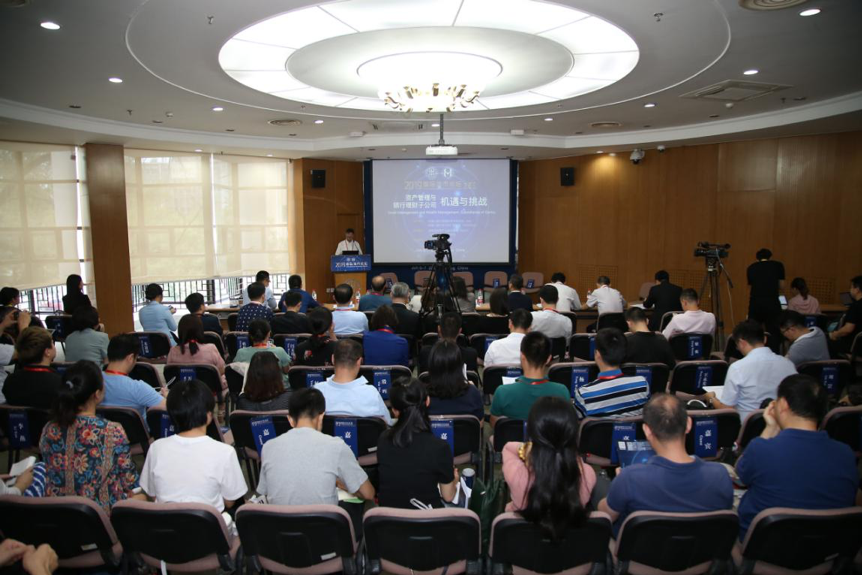 The theme 4 sub-forum was titled "Renminbi Internationalization and High-standard Financial Opening-up" and was chaired by Zhang Zhixiang, former Director-General of International Department of PBoC and former IMF Executive Director for China. Liu Jun, Vice President of China Investment Corporation, Tae Soo Kang, former Deputy Governor of Bank of Korea and Senior Research Fellow of Korea Institute for International Economic Policy (KIEP), Anoop Singh, former Director of Asia-Pacific regulatory strategy of JPMorgan Chase & Co. and former Head of Asia & Pacific Department of IMF and Jean-Francois di Meglio, President of Asia Center have delivered keynote speeches successively. Tu Yonghong, Deputy Director of IMI, Chen Weidong, Director of International Finance Institute of Bank of China, Ding Jianping, Deputy Director of Shanghai Institute of International Finance Center, Ding Zhijie, Vice President of University of International Business and Economics, Herbert Poenisch, former Senior Economist of BIS, Xu Zaiyue, President of Cross-border Interbank Payment System Operator, Wang Fang, Deputy Director of IMI, E Zhihuan, Chief Economist of Bank of China (Hong Kong), Robert Elsen, Director and Deputy Head of Section IFR 1 International Policy - Technical and Bilateral Co-operation of Federal Financial Supervisory Authority (BaFin), Wang Buzhou, Deputy Manager of International Development of Shanghai Stock Exchange, Wei Benhua, former Deputy Administrator of the State Administration of Foreign Exchange (SAFE) and former IMF Executive Director for China and Xia Le, Chief Economist for Asia of Research Department of BBVA have exchanged in-depth views under the themes of "Renminbi Internationalization and Opening-up of Chinese Financial Market" and "Renminbi Internationalization and Chinese Capital Market Reform".
The theme 4 sub-forum was titled "Renminbi Internationalization and High-standard Financial Opening-up" and was chaired by Zhang Zhixiang, former Director-General of International Department of PBoC and former IMF Executive Director for China. Liu Jun, Vice President of China Investment Corporation, Tae Soo Kang, former Deputy Governor of Bank of Korea and Senior Research Fellow of Korea Institute for International Economic Policy (KIEP), Anoop Singh, former Director of Asia-Pacific regulatory strategy of JPMorgan Chase & Co. and former Head of Asia & Pacific Department of IMF and Jean-Francois di Meglio, President of Asia Center have delivered keynote speeches successively. Tu Yonghong, Deputy Director of IMI, Chen Weidong, Director of International Finance Institute of Bank of China, Ding Jianping, Deputy Director of Shanghai Institute of International Finance Center, Ding Zhijie, Vice President of University of International Business and Economics, Herbert Poenisch, former Senior Economist of BIS, Xu Zaiyue, President of Cross-border Interbank Payment System Operator, Wang Fang, Deputy Director of IMI, E Zhihuan, Chief Economist of Bank of China (Hong Kong), Robert Elsen, Director and Deputy Head of Section IFR 1 International Policy - Technical and Bilateral Co-operation of Federal Financial Supervisory Authority (BaFin), Wang Buzhou, Deputy Manager of International Development of Shanghai Stock Exchange, Wei Benhua, former Deputy Administrator of the State Administration of Foreign Exchange (SAFE) and former IMF Executive Director for China and Xia Le, Chief Economist for Asia of Research Department of BBVA have exchanged in-depth views under the themes of "Renminbi Internationalization and Opening-up of Chinese Financial Market" and "Renminbi Internationalization and Chinese Capital Market Reform".
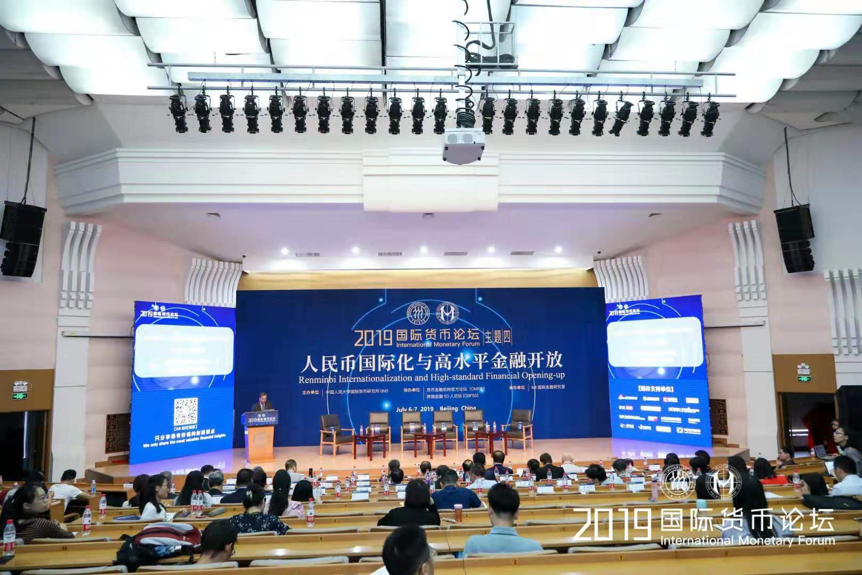 The theme 5 sub-forum "Fintech Forum and Launch of China Fintech Annual Report (2019)" was chaired by Yang Tao, Assistant Director of Institute of Finance of CASS. Li Lihui, former President of Bank of China and Head of Block Chain Working Group and National Internet Finance Association of China, Li Wei, Director-General of Science and Technology Department of PBoC, Li Qian, Director of Public Affairs of National Internet Finance Association of China, Will Haskins, China Representative of Money 20/20 have delivered keynote speeches successively under the theme of "Fintech & Financial Reform and Opening-up". Du Xiaoyu, Deputy Secretary-General of Tencent Research Institute, Wang Guangyu, President of Huaxia New Supply Economics Research Institute and Chairman of China soft Capital, Li Zhenhua, Dean of Research Institute of Ant Financial, Yao Huiya, Head of WeBank Science and Technology Innovation Products Department, Liu Yong, Director of Zhongguancun Internet Finance Institute, Yan Wentao, President of CCX Credit Technology, Pan Zhijiang, General Manager of Fintech Innovation Center of DCITS, Li Xiangchen, Vice General Manager, Director of General Manager's Office, and Director of Digital Science and Technology Department of SinoPac Financial Holdings Company Limited, Li Weidong, Vice President of Tongdun Technology, Yuan Tian, Senior Research Fellow of AVIC Trust and other guests have participated in roundtable discussions. The forum was organized by IMI and China Fintech 50 Forum (CFT50) with Money 20/20 China and SinoPac Financial Holdings Company Limited as the co-organizers. The China Fintech Annual Report (2019) was launched and the "Fintech Scholarship" was inaugurated at the forum.
The theme 5 sub-forum "Fintech Forum and Launch of China Fintech Annual Report (2019)" was chaired by Yang Tao, Assistant Director of Institute of Finance of CASS. Li Lihui, former President of Bank of China and Head of Block Chain Working Group and National Internet Finance Association of China, Li Wei, Director-General of Science and Technology Department of PBoC, Li Qian, Director of Public Affairs of National Internet Finance Association of China, Will Haskins, China Representative of Money 20/20 have delivered keynote speeches successively under the theme of "Fintech & Financial Reform and Opening-up". Du Xiaoyu, Deputy Secretary-General of Tencent Research Institute, Wang Guangyu, President of Huaxia New Supply Economics Research Institute and Chairman of China soft Capital, Li Zhenhua, Dean of Research Institute of Ant Financial, Yao Huiya, Head of WeBank Science and Technology Innovation Products Department, Liu Yong, Director of Zhongguancun Internet Finance Institute, Yan Wentao, President of CCX Credit Technology, Pan Zhijiang, General Manager of Fintech Innovation Center of DCITS, Li Xiangchen, Vice General Manager, Director of General Manager's Office, and Director of Digital Science and Technology Department of SinoPac Financial Holdings Company Limited, Li Weidong, Vice President of Tongdun Technology, Yuan Tian, Senior Research Fellow of AVIC Trust and other guests have participated in roundtable discussions. The forum was organized by IMI and China Fintech 50 Forum (CFT50) with Money 20/20 China and SinoPac Financial Holdings Company Limited as the co-organizers. The China Fintech Annual Report (2019) was launched and the "Fintech Scholarship" was inaugurated at the forum.
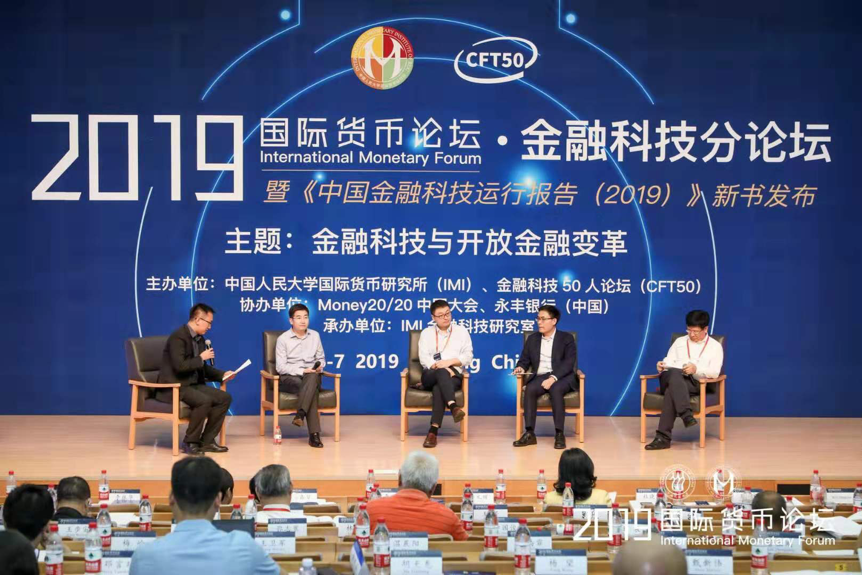 The theme 6 sub-forum was a thesis seminar on renminbi internationalization, chaired by Iikka Korhonen, Head of Research, Bank of Finland Institute for Economies in Transition (BOFIT). This session focused on the progress of RMB internationalization and its interaction with other aspects of China’s opening up, such as banking sector and bilateral swap arrangements with other countries. Jennifer Lai from Guangdong University of Foreign Studies, Lu Dong from Renmin University of China, Wang Yao from Noah Holdings Hong Kong, and Xia Le from BBVA made presentations. A tentative result from the presentations was that RMB internationalization, though far from complete, had been influencing economic development in China and its economic partners.
The theme 6 sub-forum was a thesis seminar on renminbi internationalization, chaired by Iikka Korhonen, Head of Research, Bank of Finland Institute for Economies in Transition (BOFIT). This session focused on the progress of RMB internationalization and its interaction with other aspects of China’s opening up, such as banking sector and bilateral swap arrangements with other countries. Jennifer Lai from Guangdong University of Foreign Studies, Lu Dong from Renmin University of China, Wang Yao from Noah Holdings Hong Kong, and Xia Le from BBVA made presentations. A tentative result from the presentations was that RMB internationalization, though far from complete, had been influencing economic development in China and its economic partners.
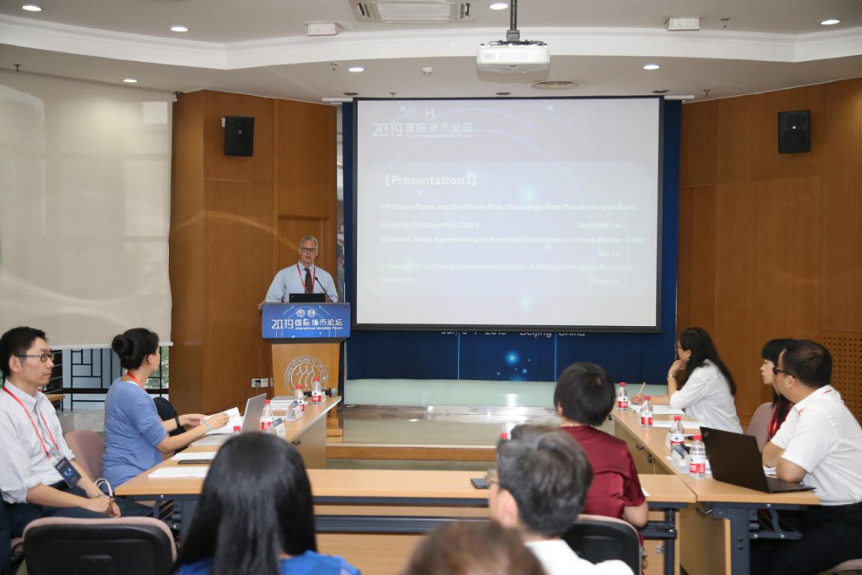 In addition, the working dinner themed the night of fintech was held on the night of July 6. Ben Shenglin, co-director of IMI, Dong Junfeng, CEO of NetsUnion Clearing Corporation, Zhang Shaofeng, founder and CEO of Bai Rong Inc., Cao Feng, senior researcher of China Blockchain Study Alliance, Xue Hongyan, assistant to the president of Suning Institute of Finance, Lv Shifeng, founder and CEO of Xin Xin Finance Inc., and Dai Yi, Chief Data Scientist of Elements Credit made keynote speeches on Fintech innovations. The session was chaired by Song Ke, Deputy Director of IMI. Outstanding Student Awards for Gin Tong Global Talent Program and Model IMF were issued as well.
In addition, the working dinner themed the night of fintech was held on the night of July 6. Ben Shenglin, co-director of IMI, Dong Junfeng, CEO of NetsUnion Clearing Corporation, Zhang Shaofeng, founder and CEO of Bai Rong Inc., Cao Feng, senior researcher of China Blockchain Study Alliance, Xue Hongyan, assistant to the president of Suning Institute of Finance, Lv Shifeng, founder and CEO of Xin Xin Finance Inc., and Dai Yi, Chief Data Scientist of Elements Credit made keynote speeches on Fintech innovations. The session was chaired by Song Ke, Deputy Director of IMI. Outstanding Student Awards for Gin Tong Global Talent Program and Model IMF were issued as well.
